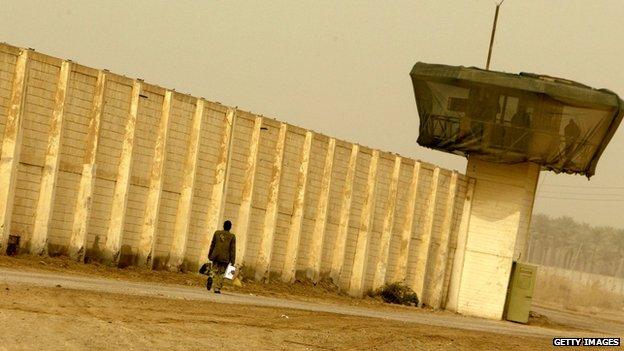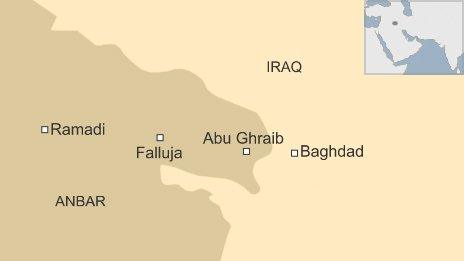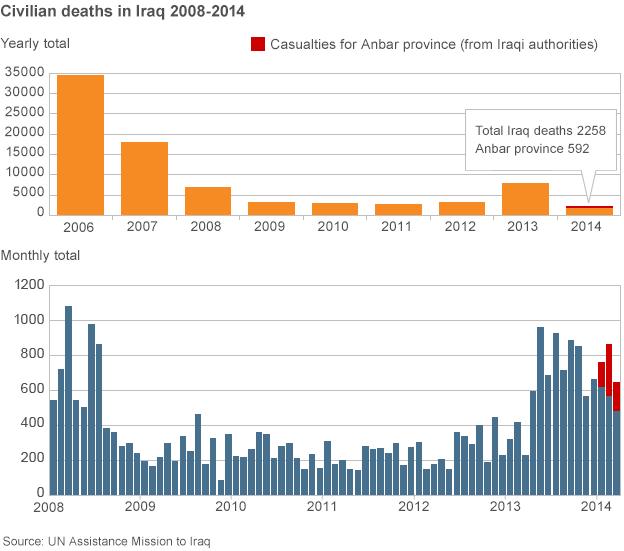Iraq closes Abu Ghraib prison over security concerns
- Published

It was not immediately clear whether Abu Ghraib's closure was temporary or permanent
Iraq's government has closed the notorious Abu Ghraib prison because of what it says are security concerns.
Justice Minister Hassan al-Shimmari announced that its 2,400 inmates had been moved to other prisons in the central and northern provinces.
Abu Ghraib lies in a restive area west of the capital, Baghdad.
It was at the centre of a scandal in 2004 when abuses carried out by US troops came to light. It has since been renamed Baghdad Central Prison.
Hundreds of detainees are also thought to have died there during Saddam Hussein's rule.
'Hot area'
On Tuesday, a justice ministry statement announced the prison's "complete closure" and the transfer of its inmates in co-operation with the ministries of defence and interior.
"The ministry took this decision as part of precautionary measures related to the security of prisons," Mr Shimmari said, adding that Abu Ghraib was "in a hot area".
It was not clear whether the closure was temporary or permanent.

Last July, militants attacked Abu Ghraib and another jail in Taji, north of Baghdad, freeing hundreds of inmates. More than 50 other prisoners and security forces personnel were killed in the raids, which were claimed by the jihadist Islamic State of Iraq and the Levant (ISIS).
Abu Ghraib is about 25km (15 miles) west of Falluja, a city in Anbar province which since early January has been under the control of Sunni tribesmen and militants allied to ISIS.
Shellfire killed five people and wounded 16 others in Falluja on Tuesday, while a mortar attack and twin suicide bombings Anbar's capital Ramadi left one dead, according to the AFP news agency.
The unrest in Anbar and elsewhere in the country has left some 340 people dead so far this month, according to an unofficial AFP tally, bringing this year's death toll to more than 2,500.
